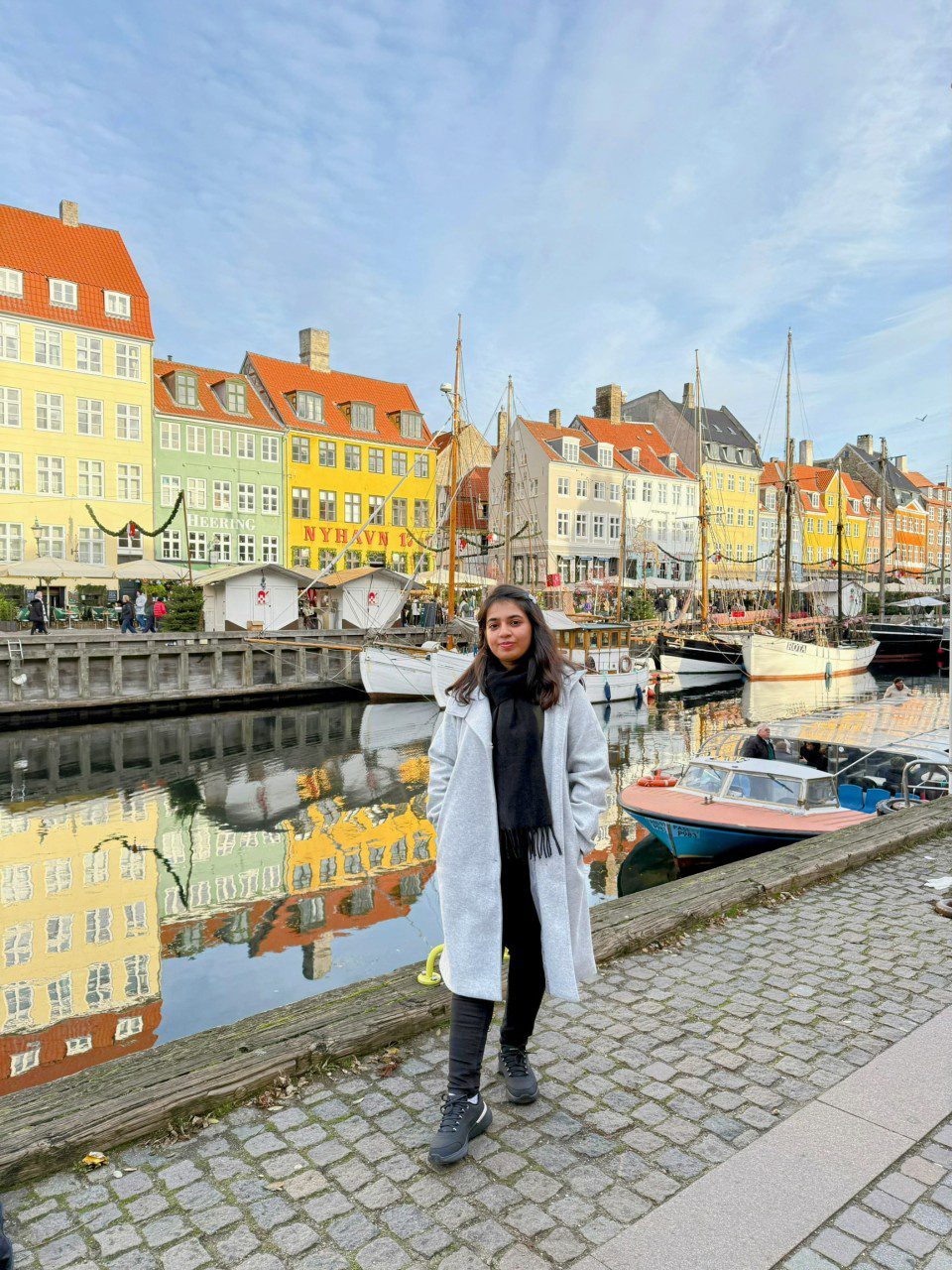From Small-Town India to UCL: How Rupali Handa Won the Chevening Scholarship to Drive Global Energy Policy
University: University College London (UCL)
Degree: MSc Economics & Policy of Energy and the Environment
Previous Education: Shri Ram College of Commerce, University of Delhi – BA in Economics (First Class Honours)
Scholarship: Chevening Scholarship – Full Funding
Additional Offers: UCL India Excellence Scholarship, Global Challenges Scholarship (University of Glasgow)
Standardized Exams: IELTS Academic
Social Media:

The Journey
My name is Rupali Handa, and I grew up in a small town in Uttar Pradesh, India. Currently, I am studying MSc Economics & Policy of Energy and the Environment at Bartlett School of Environment, Energy and Resources, University College London. I am driven to work towards accelerating the energy transition to a decarbonized, net-zero future as I strongly feel that energy is at the heart of the climate challenge and key to the solution. But to take this nascent thought process ahead, I felt the need to delve deeper into the intricacies of energy and the environment, hone my skills, and strengthen my professional networks, building on my six years of experience in policy advocacy. Therefore, I decided that it was time for me to make a pit stop and fuel up for the road ahead.
Chevening Scholarship Details
I received the Chevening Scholarship, the UK government’s prestigious global scholarship. Chevening offers fully funded study at UK universities to individuals with demonstrable potential to become future leaders, decision-makers, and change-makers. I am truly grateful to Chevening for this opportunity.
In addition to Chevening, I was also awarded the UCL India Excellence Scholarship and the Global Challenges Scholarship from the Adam Smith Business School at the University of Glasgow.
Educational Background
I pursued my undergraduate degree in Economics from Shri Ram College of Commerce, University of Delhi, one of India’s premier institutions. I graduated with First Class Honours. My academic training there laid a strong foundation for understanding economic principles and their application to real-world challenges. It enabled me to contribute meaningfully to ideas and policies aimed at building an environmentally sustainable economy. One of the most critical takeaways from my coursework was learning to analyze the trade-off between development and environmental sustainability from an economic perspective. This understanding has continued to shape my professional journey, where I have consistently advocated for policies that address this classic and complex trade-off.
How Did You Prepare to Apply to Institutions? How did you prepare for standardized tests such as the IELTS?
I applied only to courses in the UK, where the application process primarily involved submitting a Statement of Purpose (SoP) and meeting English language requirements. To fulfill the latter, I took the IELTS Academic Exam. Beyond that, strong academic performance in my previous degree and a well-rounded CV were essential.
Throughout school and college, I actively participated in extracurricular activities, which helped build a holistic profile. I also contribute regularly to public policy discussions, with articles published by the Observer Research Foundation (ORF) and leading Indian national media. In 2021, I had the opportunity to serve as a panelist at the UN Industrial Development Organization’s conference on “Green Hydrogen for Industrial Decarbonization in India.” Additionally, as a Climate Action Champions Network Fellow supported by the U.S. Department of State, I received international recognition for my leadership in climate and energy. These experiences not only strengthened my application but also helped me articulate a clear, purpose-driven narrative.
How Did You Prepare to Apply to Chevening Scholarships?
Applying for the Chevening Scholarship was one of the most rigorous yet rewarding processes I’ve ever undertaken. The application has two main stages: first, a written form with four detailed essays, and then, if shortlisted, an interview round.
Knowing how competitive it is, I began my preparation well in advance to give myself enough time to reflect on my journey, articulate my goals, and refine my application without rushing. One of the most important things I did was to read the Chevening guidelines thoroughly. Understanding exactly what Chevening looks for in terms of leadership, networking, academic merit, and future impact helped me shape my narrative accordingly. I kept asking myself: How does my story align with Chevening’s values?
When it came to the essays, I focused on being honest and specific. For the leadership and networking essays, I reflected on my past experiences. I tried to show not just what I did, but the impact it had. This helped me demonstrate how I’ve already made a difference and how I plan to scale that impact after my studies. Throughout, I paid close attention to the clarity, structure, and coherence of my essays. I sought feedback from mentors and peers, which helped me refine my responses and present a compelling narrative.
Selecting strong referees was also key. I chose mentors familiar with my work, who had seen my growth over time and could speak meaningfully about my character, achievements, and potential.
Finally, I made a conscious effort to think about my post-study plans. Chevening places great emphasis on your return and contribution to your home country. I detailed how the MSc programme at UCL would equip me with the right tools to support India’s energy transition, and how I planned to use those skills to influence policy and accelerate decarbonization efforts back home.
Looking back, the process wasn’t just about submitting an application, it was about revisiting my journey, identifying what drives me, and imagining what kind of leader I want to become. Chevening gives you that space to reflect and grow and that, in itself, is a powerful experience.
How is Your Experience at the University College London?
My academic background in Economics, combined with my work experience in policy, dovetails perfectly into this MSc course. It has helped structure my ability to deliver practical solutions by equipping me with a formal toolkit for economic and policy analysis. It has been intellectually stimulating and professionally enriching. In addition to my studies, I also serve as a Bartlett Student Ambassador, which allows me to engage with prospective students, share my experiences, and contribute to the wider UCL community.
What Do You Think Made Your Application Stand Out?
I believe my application stood out because of the clarity of purpose, authenticity, and a demonstrated commitment to driving change in the climate and energy space. I wasn’t just outlining what I had done, I was connecting it to why it mattered and how I planned to build on it.
My journey reflects not just leadership or accolades, but persistence and grit. I’m deeply aware that the change I want to contribute to, will be far from easy. But the complexity of that challenge has only strengthened my resolve. I think that mindset came through in my application.
Combined with a clear post-study vision, impactful professional experiences, and strong recommendations, I believe this sense of purpose and perseverance helped me stand out.
What Would You Have Done Differently if You Were Going Through the Process Again?
If I were to go through the process again, I would invest more time in improving my storytelling skills. Looking back, I realize that strong content alone isn't enough, how you tell your story makes a huge difference.
What Advice Would You Give Those Looking to Apply for a Similar Scholarship?
Start by being honest with yourself about why you want this opportunity. A strong application isn’t just a list of achievements; it’s a story about who you are, what drives you, and how this scholarship fits into your larger journey. Take time to reflect on your experiences and connect the dots between your past, present, and future goals.
Focus on impact, not just titles or positions. Show how your actions, no matter how big or small, have contributed to meaningful change. Concrete examples always speak louder than vague claims.
Also, don’t underestimate the importance of authenticity. Reviewers can tell when you're being genuine versus when you're trying to write what you think they want to hear. Let your personality and values come through.
Finally, seek feedback, early and often. And remember, rejections don’t define your worth. If this is something you truly believe in, persistence and self-awareness will carry you a long way
Want to submit your
scholarship journey?
Submit Your Story Here!
More Scholarship Recipients

I am Sabeen Imran, coming from Pakistan, where I did my Bachelor's in Environmental Sciences from the University of Veterina .... Read more

My name is Ivena Nathania Victor; you can call me Ivena. I have a Master’s of Science and Master’s of Arts degree in Cli .... Read more

My name is Aisha Lareb, and I am from Sindh, Pakistan. Growing up, I witnessed the challenges faced by women in my community .... Read more

Leave A Comment